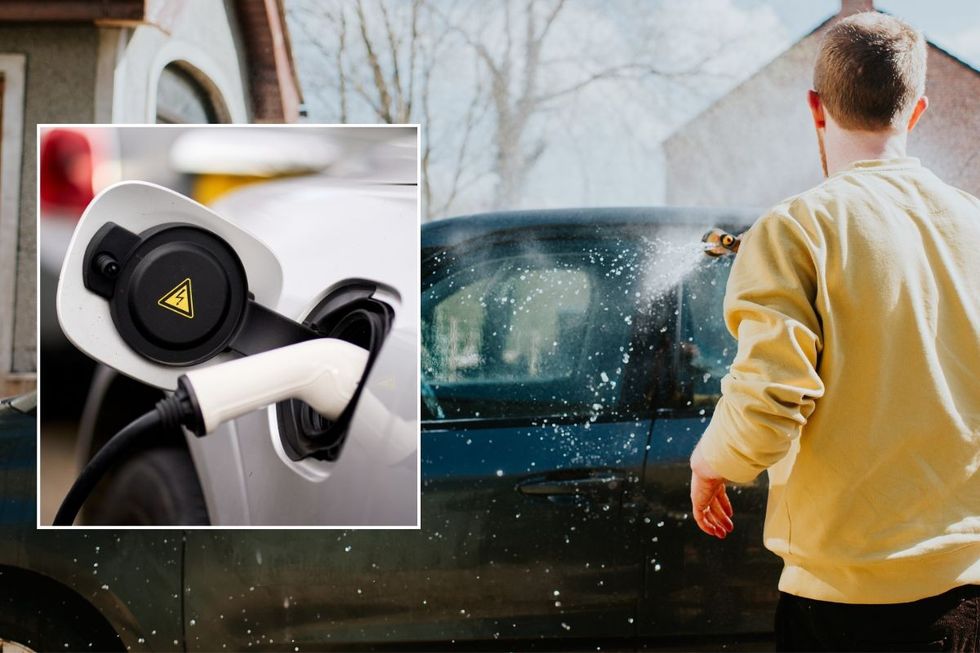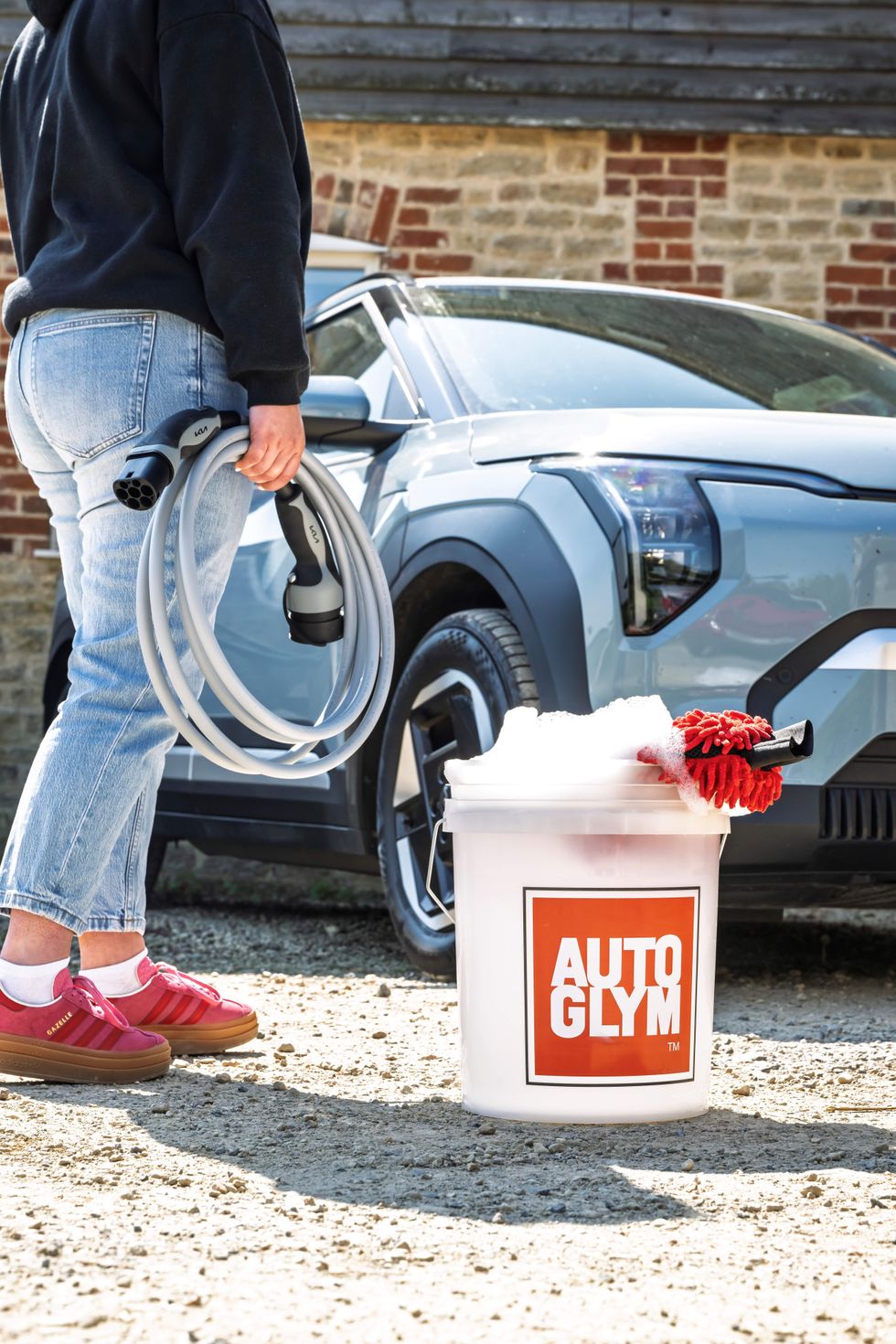Britons wrongly believe drivers can receive electric shock when washing an EV - 'Completely false'

Younger people were the most unsure about cleaning electric vehicles
Don't Miss
Most Read
More than one in five Britons incorrectly believe that they could be shocked when washing an electric vehicle, according to shocking new data.
New research has exposed widespread misconceptions about electric vehicle safety amongst British motorists.
The study revealed that 21 per cent of participants agreed with the statement: "If I were to wash an electric car, I fear there might be a risk of receiving an electric shock".
This unfounded concern appears particularly pronounced amongst younger demographics, suggesting a significant knowledge gap exists despite the increasing adoption of electric vehicles across the country.
Do you have a story you'd like to share? Get in touch by emailing motoring@gbnews.uk

Many Britons believe washing and cleaning an electric vehicle could shock them
|GETTY
Nearly half of those aged 25 to 34 - 46 per cent - harbour this baseless fear about washing electric vehicles.
Similarly, two-fifths of drivers aged between 18 and 24 share the misguided concern.
In stark contrast, older motorists demonstrate far greater confidence when it comes to EV safety, with just eight per cent thinking they can be shocked.
Industry experts have categorically dismissed these safety concerns as completely unfounded and called for more education to be made available.

Experts have called for greater education for motorists about electric vehicles
|AUTO GLYM
Motoring journalist and founder of FairCharge Quentin Willson stated: "Getting a shock when cleaning an EV is a very old myth and completely false.
"Car makers rigorously test battery EVs for safety and perform special water soak tests to make sure all high voltage components are insulated and consumers are always protected."
He added that there was no evidence of someone getting an electric shock from an electric vehicle while charging one.
The former Top Gear host said that electric vehicles have been on sale for more than 15 years, meaning someone would have come forward if there was a "danger".
LATEST DEVELOPMENTS:
London car owners emerged as the most apprehensive, with almost half believing that they can be shocked, which is more than double the national average.
Wales stands at the opposite end of the spectrum, with merely seven per cent of Welsh motorists sharing this concern.
Lee Irving, technical training manager at Autoglym, said: "We know that the world of EVs can be a mystery to some, but making sure that the misconceptions are rectified is extremely important, especially as we're all being encouraged to make the switch to this new form of clean mobility.
"While we recommend owners avoid flooding an EV's charging port with water, cleaning one is no more dangerous than cleaning a petrol- or diesel-powered vehicle."
There are already more than 1.5 million electric vehicles on the road across the country, which represents around 4.5 per cent of the UK's total car parc.
The UK has seen a more than threefold increase in the number of electric vehicles on the road since 2021, when there were just 396,945.
The latest data from the Society of Motor Manufacturers and Traders (SMMT) shows that 32,738 new electric cars were registered in May this year.
Electric cars now make up 21.8 per cent of the total market share, although this is below the target of 28 per cent set out in the Zero Emission Vehicle (ZEV) mandate.











